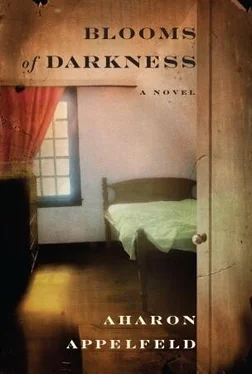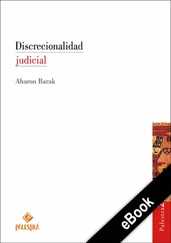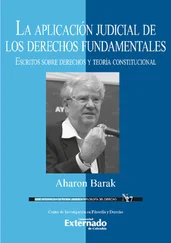“I don’t have any talent.”
“The game isn’t as complicated as it seems to you.”
“It’s complicated for me.”
You have to prepare yourself for independent life , it occurs to Hugo to say to him, but he doesn’t say it.
Otto is a passive boy. He’s like his mother, who keeps saying, “There are some people that the war gives life to. I raise my hands and surrender. I don’t have the strength to fight over a slice of bread. If that’s what life is, you can have it.”
Otto’s mother was a high school teacher. People still respect her even now, in these lamentable conditions. In the past she expressed opinions and estimations and presented examples from ancient and modern history. Now she shrugs her shoulders and says, “I don’t understand a thing. A different kind of reason has come to the world.”
Hugo records in his heart everything his eyes see: the people who enter the house in a panic and spit out a horrifying bit of news, and the ones who sit by the table and don’t utter a word. The house has changed beyond recognition. The windows are shut tight and the curtains add to the darkness. Only from Hugo’s narrow window, which looks out onto the courtyard, can he see Railroad Street and the deportees. Sometimes Hugo recognizes a parent or a child from his class among the deportees. He knows that his fate will be no different from theirs. At night he burrows under his blanket and is sure that he is now protected.
People come in and out of the house without knocking on the door and without asking permission, like after his grandfather died. His mother greets them, but she can’t offer them a cup of coffee or lemonade. “I have nothing to give you,” she says, raising her hands.
I’ll remember every corner of the house , Hugo says to himself, but more than the house, I’ll remember Mama. Mama without Papa is lost. She tries to do everything necessary; she runs from place to place to find a peasant who will take me with him to the mountains .
“How can we know that he’s an honest peasant?” his mother keeps asking in despair.
“That’s what people say,” they reply.
Everyone is groping in the dark, and in the end they deliver their children to the unknown peasants who come at night. Evil rumors say that the peasants take the money for themselves and deliver the children to the police. Because of those rumors, some parents aren’t willing to let the peasants have their children. “When the child is with you, you can defend it,” a panicked parent will say. For some reason, Hugo is not afraid. Perhaps because he used to go to his grandparents in the country in the summer. Sometimes he stayed for a week with them. He loved the fields of corn and the meadows, where spotted cows grazed. His grandparents were tall and quiet. They spoke little. Hugo loved to be in their company. He imagines his life among the peasants as one of great tranquility. He will have a dog and a horse, and he will feed them and take care of them. He always loved animals, but his parents refused to take in a dog. From now on, he’ll live in nature, like the peasants who doze under the trees at noon.
For safety’s sake, Hugo and his mother go down into the cellar at night and sleep there. At night the soldiers and gendarmes sweep through houses and snatch up children. Quite a few children have already been seized. The cellar is cold, but they wrap themselves in blankets, and the cold doesn’t penetrate.
Otto secretly sneaks in and tells Hugo that Anna has reached the mountains safely and that he has already received a letter from her. Every letter that arrives from the mountains is a small victory. The skeptics, of course, keep to their pessimism and say, “Who knows what conditions the letters were written under. The peasants who brought the letters asked for more money. There’s no love of mankind with them, just greed.”
Hugo hears the skeptical voices and he thinks of telling Otto, You mustn’t be so pessimistic. Pessimism weakens you. You have to be strong and encourage your mother .
At first the majority were optimists, but in the past weeks they have become a minority. People dismiss their hopes and hold them in contempt.
At night his mother admits that she hasn’t succeeded in finding a peasant who is willing to hide him. If there is no alternative, she will take him to Mariana.
Mariana is a Ukrainian woman who went to elementary school with Hugo’s mother. While still a young girl, she left school and had fallen low. What does “fallen low” mean? Hugo asks himself. A wagon rolls down and tumbles into a chasm, but a person collapses and doesn’t make the sound of rolling down.
Hugo likes to listen to words. There are words whose sounds made their meaning clear to him, and there are words that don’t evoke pictures but just go past him without showing him anything.
Hugo sometimes asks his mother the meaning of a word. His mother tries to define it, but she doesn’t always manage to make a picture out of the word.
Just then Aunt Frieda comes into the house with some news. Frieda is well-known. Everybody talks about her with a certain smile. She was married twice, and she has recently been living with a Ukrainian man years younger than she.
“Julia, don’t worry. My boyfriend is willing to take you to his village. He has an excellent hiding place.”
His mother is stunned. She hugs Frieda and says, “I don’t know what to do.”
“Don’t lose hope, my dear,” says Frieda, pleased that the family is accepting her again.
Frieda is a pretty woman. She wears unusual clothing, and every once in a while she causes a scandal. Because of her wild way of life, her family kept its distance from her. Even Hugo’s mother, who helps the needy, wasn’t charitable to her.
Frieda keeps praising her boyfriend, who is willing to endanger himself for her and for her family. “Only Ukrainians can save us, if they want to,” she says, glad to be able to help her family, even though it has been estranged from her for years.
Hugo’s mother thanks her again and says, “I was already in despair.”
“You mustn’t despair,” says Frieda. It is clear that she has been practicing that sentence for years, and now she can demonstrate that despair is indeed an illusion. “There’s always a way out. There’s always someone who loves you. You have to be patient and wait for him.” Hugo looks at her closely, and to his surprise he discovers features of a little girl in her face.
The ghetto is thinning out. Now they are snatching old people and children in houses and in the streets. Hugo spends most of the day in the dark cellar, reading and playing chess by lantern light. The thick darkness plunges him into early sleep. In his sleep he escapes from the gendarmes by climbing a tree, but in the end he falls into a deep pit. When he wakes up, he is glad that the fall didn’t hurt him.
Every few hours his mother comes to see him. She brings him a slice of bread spread with fat, and sometimes an apple or a pear. Hugo knows she is denying herself food to give him more. He implores her to eat a portion of the food, but she refuses.
Again, another transport. Hugo stands at the narrow window and watches. There are shoves, screams, and bitter fights. In the pressing crowd, Frieda’s colorful figure stands out. She is wearing a flowery dress, her hair is disheveled, and from a distance it seems that the shoving is making her laugh. She waves her straw hat as though she hadn’t been caught but was going of her own free will on vacation to a resort.
“Mama, I saw Frieda in the transport.”
“Impossible.”
“With my very eyes I saw her.”
In the evening Hugo’s mother finds out that Frieda has been seized and deported without any of her belongings. The great hope that her Ukrainian boyfriend would give them refuge has been destroyed.
Читать дальше












